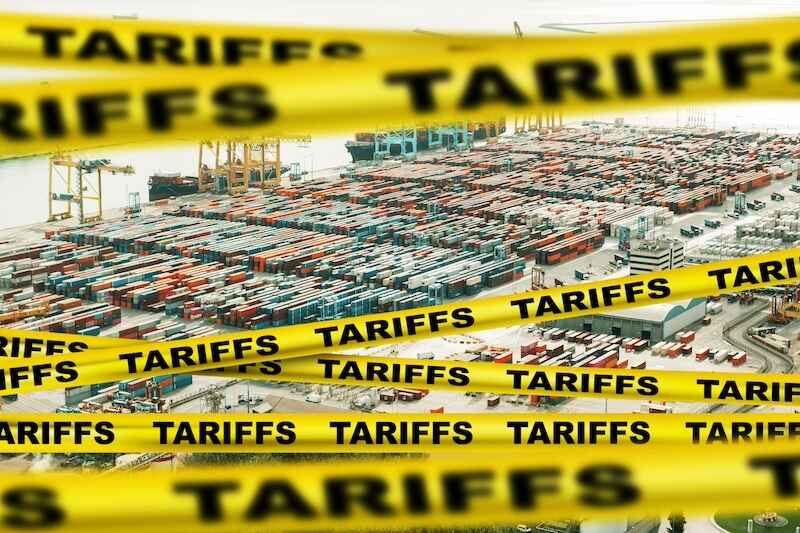The Canary in the Global Stock Coalmine is Singing – Your Evergrande Action Plan
Shah Gilani|November 4, 2021
Just because China Evergrande Group made an $83.5 million bond interest payment on October 23 – at the last possible minute under a 30-day grace period – doesn’t mean it’s out of the woods.
The giant property developer, once a Fortune Global 500 company, has $305 billion in outstanding debt, $500 million in interest due by the end of this year, and no money to pay it off. Its back is up again a wall – the $60 trillion Chinese residential property sector – and that wall is leaning back.
If Evergrande defaults on its debt and is forced into bankruptcy, the great wall of residential property in China will collapse the country’s economy and contagion will hammer the global stock markets.
Here’s how important and fragile the Chinese residential property sector is today, what will happen to the country’s economy if it falls over, what you should do to protect yourself from the inevitable contagion U.S. and global stock markets will face, and how to turn a crash into your good fortune.
Biggest in the World
China’s rapid rise from a third-world country to the No. 2 economy on the planet is a success story of monumental proportions. Chinese GDP per capita soared from $3,800 in 1999 to an estimated $10,500 in 2020, the World Bank reports. That almost doubling of the standard of living in a single generation was dwarfed by whole economy GDP growth. In the same time span, China’s GDP grew from $1.09 trillion to $14.72 trillion, a staggering 1,245% surge. By comparison, U.S. GDP in 1999 totaled $9.63 trillion and grew 117% to $20.94 trillion last year.
Two catalysts ignited China’s astronomical growth: Exports and the country’s soaring residential property sector.
A testament to how rapidly the residential property sector has grown and how fragile it is can be found in the valuation that was calculated by Goldman Sachs Investment Research. While the sector is the largest asset class in the world at $60 trillion, second by a distance is the U.S. bond market at $48 trillion, the property sector was valued at $40 trillion two years ago. The only way an asset class that big can grow that fast – 50% in two years – is through massive amounts of leverage.
The entire residential property sector, not just the last $20 trillion worth, the $40 trillion before that, is built on debt, debt which is coming due.
The Debt Collector is Knocking
Property developers borrow from big banks, insurance companies, brokerages, hedge funds, and even local governments. They raise money by selling “wealth products” through banks and brokerages and through shadow-banking channels. They borrow in the country’s bond market and in offshore bond markets where they issue dollar-denominated, and yen-denominated, and Aussie-dollar denominated bonds. And they take hundreds of billions of dollars’ worth of deposits from prospective home buyers. Evergrande has even borrowed from its employees, lately, to make interest payments.
All that borrowing going into residential property means a huge swath of China’s economy is leveraged to developers, construction companies, suppliers, homeowners, buyers, and of course real estate prices.
Harvard economist Ken Rogoff estimates the residential property sector constitutes 29% of China’s GPD, four percentage points higher than Goldman’s estimates. Either way, it’s huge.
Property accounts for 70% of Chinese households’ assets, which means if housing prices start to fall the Chinese are going to see their net worth impacted, lose confidence in their upward mobility, spend less, and maybe dump their homes into a crashing market.
Sales of new homes are already skidding as buyers step to the sidelines, afraid teetering developers won’t be able to stand by new construction, won’t finish homes, or will default, one on top of another and throw the country into recession, or worse.
China Real Estate Information Corp. recently reported sales at the country’s Top 100 real estate companies fell 36% in September from a year ago.
And now home prices are slipping.
Evergrande’s the biggest – but it’s not the only developer in trouble.
Other giant property developers are missing debt payments. Fantasia, another well-known large developer, missed a debt payment three weeks ago. Country-wide developer, Sinac, recently warned it would likely miss a payment too.
Moody’s Investors Service reported 12 real estate companies defaulted in the first half of the year.
Fitch Ratings and Moody’s have together downgraded 91 real estate development and related companies this year. That’s the fastest pace of downgrades in 5 years and 3 times the number of upgrades.
Last month Bloomberg reported that of $139 billion in U.S. dollar-denominated bonds trading at “distressed levels,” 46% were bonds issued by the Chinese real estate related developers and financing companies
Property-related loans frighteningly make up one-third of all loans on the books at Chinese banks.
I Know Why the Canary Sings
All eyes are on Evergrande. Although other big, mid-size, and smaller property developers are having trouble meeting debt service, Evergrande, as big as it is, as deeply ingrained in the Chinese economies, with millions of homes sold, another 1.6 million waiting to be finished, in projects across China’s most important cities, with all their lenders and creditors, millions of retail investors, homebuyers whose billions of dollars in deposits they’ve taken in, even the company’s employees who’ve been strongarmed into lending them money, makes Evergrande the canary in the coalmine.
If it chokes to death on the noxious fumes of wafting interest payments, and the government doesn’t bail them out and stave off bankruptcy, China’s going to have its Lehman moment, and it won’t be pretty.
Global equity markets will suffer almost instantaneous profit-taking, because at all-time highs investors and traders don’t want to lose what the huge profits they’re sitting on. And because we’re at highs, having been propelled there by sidelined money going to work, there won’t be buyers waiting to dive into a murky pool. Selling in that environment could send stocks down 15% -25% in a matter of days or weeks as investors run for the exits fearing a reprise of what happened to global markets when the U.S. subprime squid game killed the country’s investment banks, rendered commercial banks technically insolvent, and flattened the economy so much that it would take years to.
If a similar scenario plays out, you’ll want to have stop-loss orders down before the canary croaks. And if we get a hard-and-fast correction, and you’ve gotten out, you’ll want to jump onto the best of the best stocks that go on sale, and some more speculative stocks that could get hit brutally, but would eventually rise and shine again.
My buy list, on any correction caused by a residential property meltdown in China, would include:
- Microsoft (Nasdaq: MSFT), of course, because it’s my favorite company.
- Apple (Nasdaq: AAPL), which could get smacked 25% down to $110, on account of suppliers in China stumbling and sales of products and services, which are more than 17% of its revenue. Getting slashed by that much would make the iDevice maker an absolute buy.
- Micron Technology (Nasdaq: MU), the data-storage king with products like USB flash drives, a company already on sale, could crash if China tanks, because MU gets 57% of its revenue from that country. Buying MU at 50%-75% off would be a homerun, even if it takes a few years to bounce back.
- And last but not least, the stock that would get the hardest if China rolls over is Wynn Resorts (Nasdaq: WYNN ). WYNN gets more than 70% of its revenue, or close to $4.7 billion, from Macau and wouldn’t escape the Evergrand fallout. WYNN, another stock already on sale, down from more than $140 to $94, could easily lose another 50% of its value. At $40-$45, it would be on my shopping list for sure.
When the canary stops singing, it will be time to start shopping.
Cheers,
Shah

Shah Gilani
Shah Gilani is the Chief Investment Strategist of Manward Press. Shah is a sought-after market commentator… a former hedge fund manager… and a veteran of the Chicago Board of Options Exchange. He ran the futures and options division at the largest retail bank in Britain… and called the implosion of U.S. financial markets (AND the mega bull run that followed). Now at the helm of Manward, Shah is focused tightly on one goal: To do his part to make subscribers wealthier, happier and more free.

